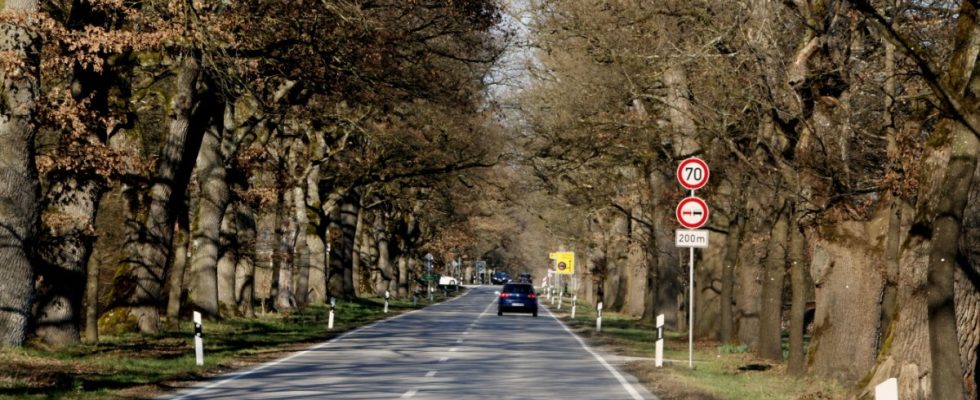The state parliament Greens have called on the state government to do more for the avenues in Bavaria. Because avenues not only have a special landscape aesthetic quality. They are important for flora and fauna – for example as a habitat for birds, bats and insects. “Bavaria is a developing country,” says Würzburg Green MP Patrick Friedl. “We want to change that.” The protection of the avenues was a central demand of the “Referendum on Biodiversity – Save the Bees in Bavaria” 2019. It is thanks to the success of this initiative that it was included in the Nature Conservation Act. For four years now, it has been forbidden in Bavaria to “remove, damage or otherwise significantly impair” avenues.
However, the state government itself still knows very little about the avenues in Bavaria. This is shown by a written question from the state parliament Greens, to which Transport Minister Christian Bernreiter (CSU) has now responded. According to this, the state government has no data on the population, nor on felling and new planting. When it comes to violations of the protective regulations, the state government is also clear. And she also doesn’t know how much money the road construction authorities have available for the creation and maintenance of avenues.
In fact, Bavaria ranks far behind in a country comparison. This is shown by a current study by the University for Sustainable Development in Eberswalde, Brandenburg. According to this, the avenues in the Free State have a total length of 166 kilometers, while rows of trees on one side add up to a total length of 945 kilometers. Only in the significantly smaller federal states of Hesse and Saarland is the balance worse. And the researchers had no data from the city states. Otherwise, all federal states are well ahead of Bavaria, even Baden-Württemberg, which is half the size. The front runner is Brandenburg with avenues with a total length of 4,332 kilometers. And when it comes to tree rows, Lower Saxony is in first place with a total length of 14,078 kilometers.
Friedl’s central demand is a “Bavarian avenue cadastre” in which the entire inventory is recorded centrally. The cadastres in the leading avenue states of Brandenburg, Mecklenburg-Western Pomerania and North Rhine-Westphalia should serve as models for this. “The state government can only fulfill its protection task with reliable knowledge,” he says. He also calls for a funding program for municipalities that take care of the avenues in their area – for mapping, protection, maintenance and new creation. Only with such a funding program will the Free State be able to at least somewhat catch up on the immense gap to other federal states.
Friedl is also calling for a rethink when it comes to winter service. When asked how the state government protects avenues from road salt, Bernreiter’s answer says: “To effectively combat winter slippery conditions (…) and thus to ensure the traffic safety and functionality of our roads, the use of de-icing materials, i.e. de-icing salt, is necessary. essential.” That’s not enough for Friedl. He calls for more tree-friendly alternatives to be examined for winter service. The MP also calls for concepts on how avenues and rows of trees in regions with intensive agriculture can be effectively protected from agrochemicals on the adjacent fields.

